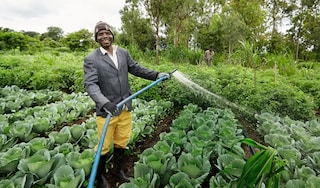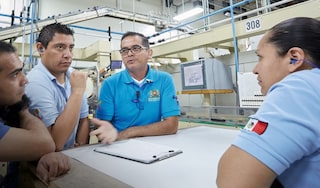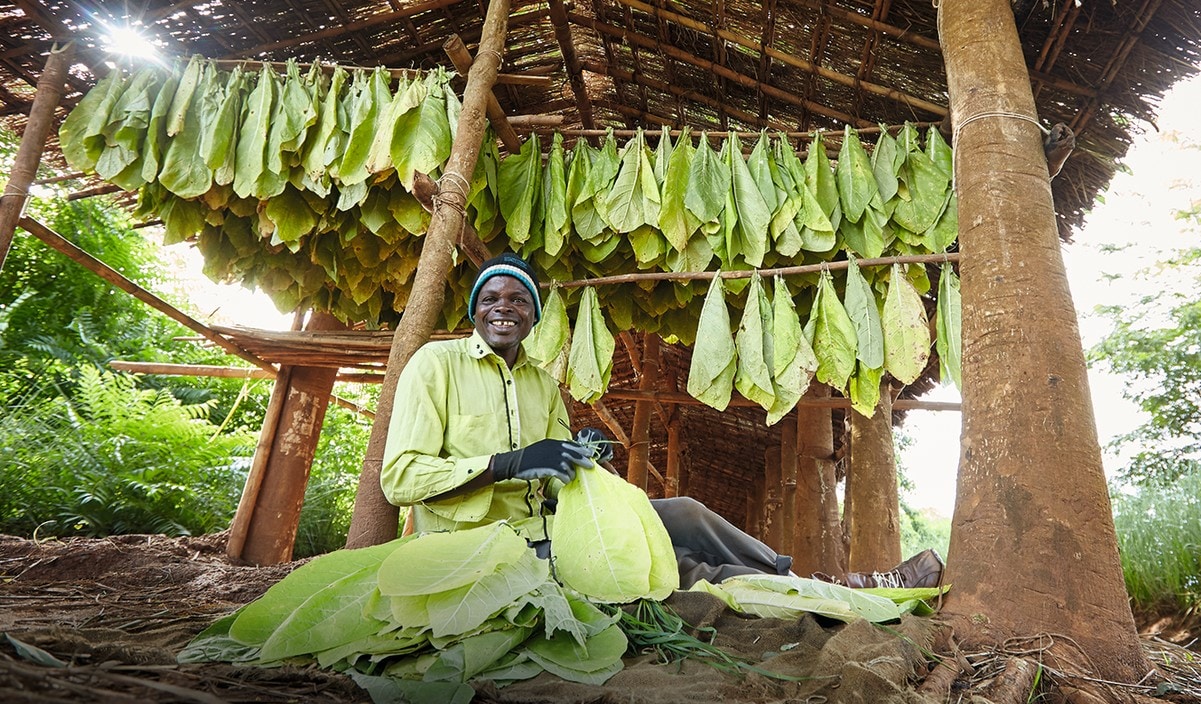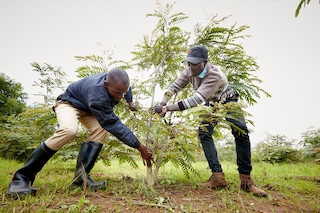PMI sources significant quantities of tobacco from Malawi and Mozambique and therefore has an important role to play in supporting community and environmental well-being in those countries. To give an idea of scale, PMI’s supply of tobacco leaf in Malawi comes from 28,000 farms covering approximately 50,000 hectares.
-
85,000
Live barns grown by our suppliers across Malawi and Mozambique since 2014
Both countries face the challenge of deforestation driven by population growth, demand for agricultural land expansion, urban expansion, fuelwood, timber and charcoal demand, tobacco cultivation, brick-making, and uncontrolled bush fires.
A further specific challenge in Malawi and Mozambique is the demand for timber used to build barns for the air-drying of Burley tobacco – timber poles are used in a simple thatched roof structure where tobacco leaves are hung to dry.
As the wooden poles used in the barns are attacked by termites, they need to be replaced regularly. This issue has been solved with the concept of the “live barn” – a structure of living trees which support the curing poles and remain in place for many years.
Since 2014, PMI suppliers have grown more than 85,000 such barns across the two countries. The first 1,000 live barns we planted are now being used. In 2018, we supported the planting of ten million trees that in future will grow to be the poles for some 68,400 barns.
PMI suppliers provide the tree seedlings (from a range of species), advice, and propagation materials to help ensure high tree survival rates and optimal growth rates. Bamboo seedlings are also provided so that bamboo poles can be used as horizontal supports and for the barn roof skeleton in the future.
By 2020, all contracted Burley farmers in Malawi and Mozambique will have live barns planted. This program will help farmers to conserve the environment and increase biodiversity, promote efficiency on their farms, provide additional wood for their own use from annual pruning, and effectively reduce deforestation.
Other 2018 case studies

Working towards crop diversification
Read more
Early adopter market Japan
Read more
Human rights due diligence in Mexico


